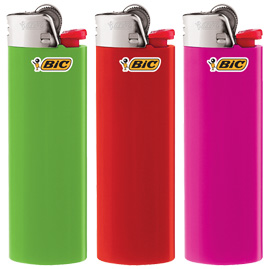Most homeowners rarely think long and hard about where their power comes from. We use electricity, natural gas, or oil to heat our homes, food, and water, and don’t pay much attention to other ways to obtain fuel until we are left without it. If you’re forced to get those basic human necessities outside of your home, however, you start to encounter a lot more choices about how to cook your food or heat yourself, especially if you’re an outdoor enthusiast. When you need a portable fuel source for heat and fire, nine times out of ten, refined butane is the best way to go. But don’t just take our word for it; read on to discover why you should be using butane.
What are the Uses of Bottled Butane?
While people are most familiar with butane through the use of disposable or refillable pocket cigarette lighters, there are many other uses of both pure butane and butane-propane blends for consumers. Butane bottles are used for a wide range of devices and purposes, including:

 Cigarette Lighters – Perhaps the most widely known use for butane is in disposable and refillable cigarette lighters. But these pocket-sized lighters are not just for cigarettes. They are easier to use than matches and are ideal for products that do not require a large or extremely hot flame such as lighting decorative and atmospheric candles, burning incense, and smoking tobacco from pipes.
Cigarette Lighters – Perhaps the most widely known use for butane is in disposable and refillable cigarette lighters. But these pocket-sized lighters are not just for cigarettes. They are easier to use than matches and are ideal for products that do not require a large or extremely hot flame such as lighting decorative and atmospheric candles, burning incense, and smoking tobacco from pipes.

